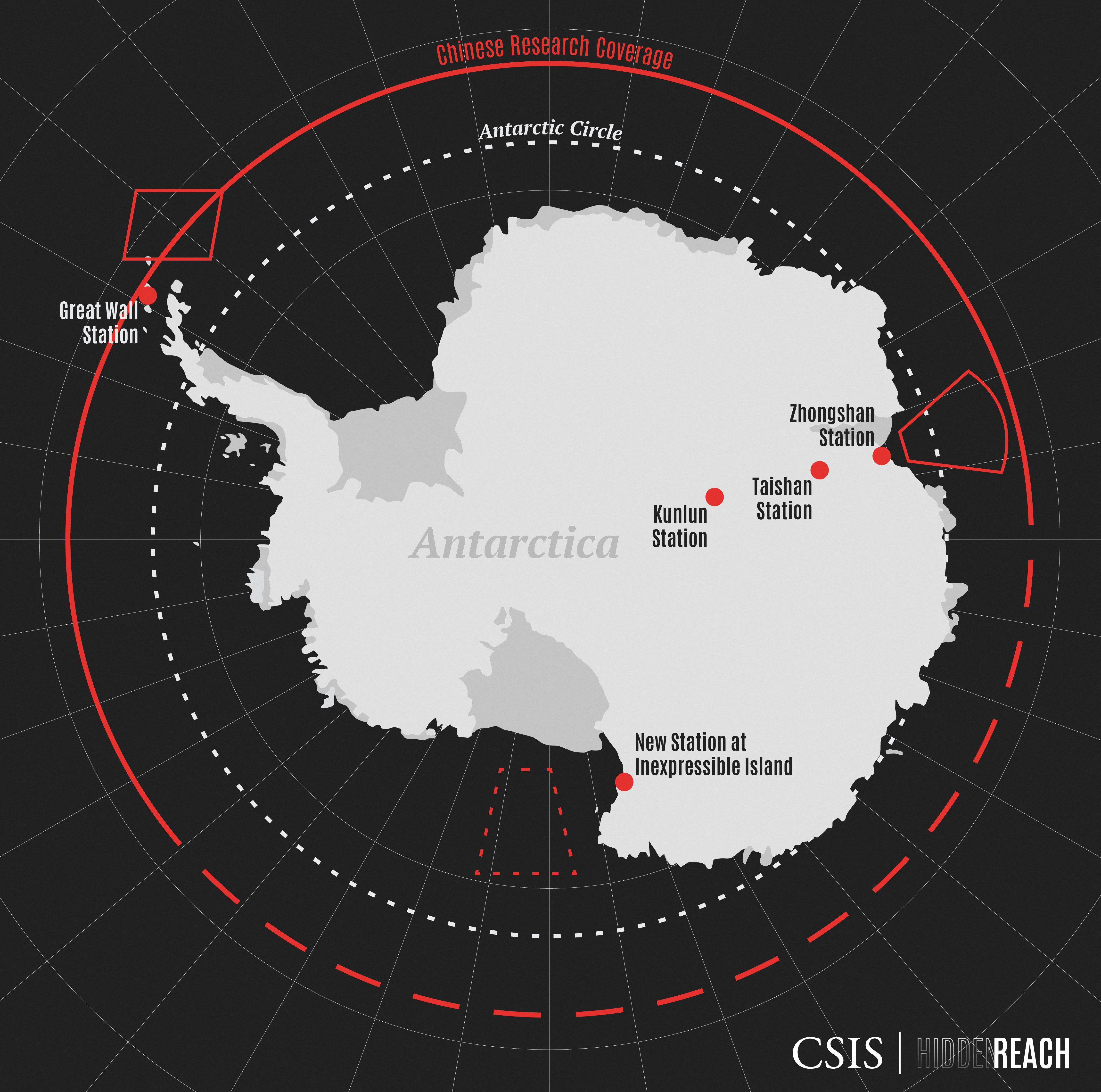What We’re Watching: China’s Antarctic “research,” Seoul’s warning to Moscow, Kiwi’s called-off cat cull
What's China really up to in Antarctica?
China is ramping up construction of its fifth scientific research station in Antarctica. But the new facility might have a hidden purpose, according to a new report by the Center for Strategic and International Studies, a US think tank.
Indeed, the Pentagon believes that the scientific investigation equipment can also be used to collect signals intel on two US allies: Australia and New Zealand. What's more, the station is located on Inexpressible (!) Island near the Ross Sea in order to triangulate signals with its existing stations and thus monitor Aussie and Kiwi space activity.
Unlike in the North Pole, where China has long wanted to become a player as melting ice caps offer opportunities for new mining and shipping lanes (not to mention spying on Canada), the frozen continent is off-limits for military activities under a 1959 treaty. The problem is a lot of the Chinese tech at the research stations is dual-use — as are some of China's "civilian" firearm exports to Russia.
Still, there's not much the West can do about it. So if you're Australia or New Zealand, be careful: China will soon be listening.
A warning from Seoul
Days before his visit to Washington next week to mark 70 years of South Korea’s defense alliance with the US, President Yoon Suk Yeol has issued a surprise warning: His country might send weapons to Ukraine, he says, “if there is any large-scale [Russian] attack on [Ukrainian] civilians, massacre or serious violation of the laws of war.”
So far, South Korea has limited its help to economic and humanitarian aid, and this issue is already a hot political topic in South Korea. The recent US intelligence leaks about the war suggested Seoul might try to secretly send weapons to Ukraine via the US or Poland and, aware that polling in South Korea has shown such a move would be unpopular, the country’s opposition used this news to hammer Yoon’s government.
Yoon also knows that Russian support for North Korea means Moscow has tools it can use to create problems for Seoul. But Yoon’s comments offer a reminder on the durability of foreign support for Ukraine more broadly: It depends in part on Russian actions. If the Russian military’s inability to capture new ground leads President Vladimir Putin to sanction artillery attacks that kill much larger numbers of Ukrainian civilians, outside support for Ukraine becomes an easier political sell for many governments.
Department of animal news: Kiwi cat massacre called off
A rural New Zealand organization has canceled an event in which children would have competed for a cash prize by shooting as many feral cats as possible between now and the end of June. The hunt, part of a larger seasonal cull of wild animals, was criticized by animal rights activists and cat owners, who feared their own pets would get caught up in the killings.
Cat people rejoiced at the news, but then came the bird people, who pointed out that feral cats kill more than a million birds a year in New Zealand and are responsible for the extinction of as many as six feathered species already. And the frog, lizard, and bat people reportedly have their own grievances with the country’s more than 2 million wild cats as well.
No comment yet from the dog people, who are usually arrayed against both bird people and cat people, but who now may have to choose their side in a kaleidoscopically shifting set of animal antagonisms.
Where do you stand? Tell us here.